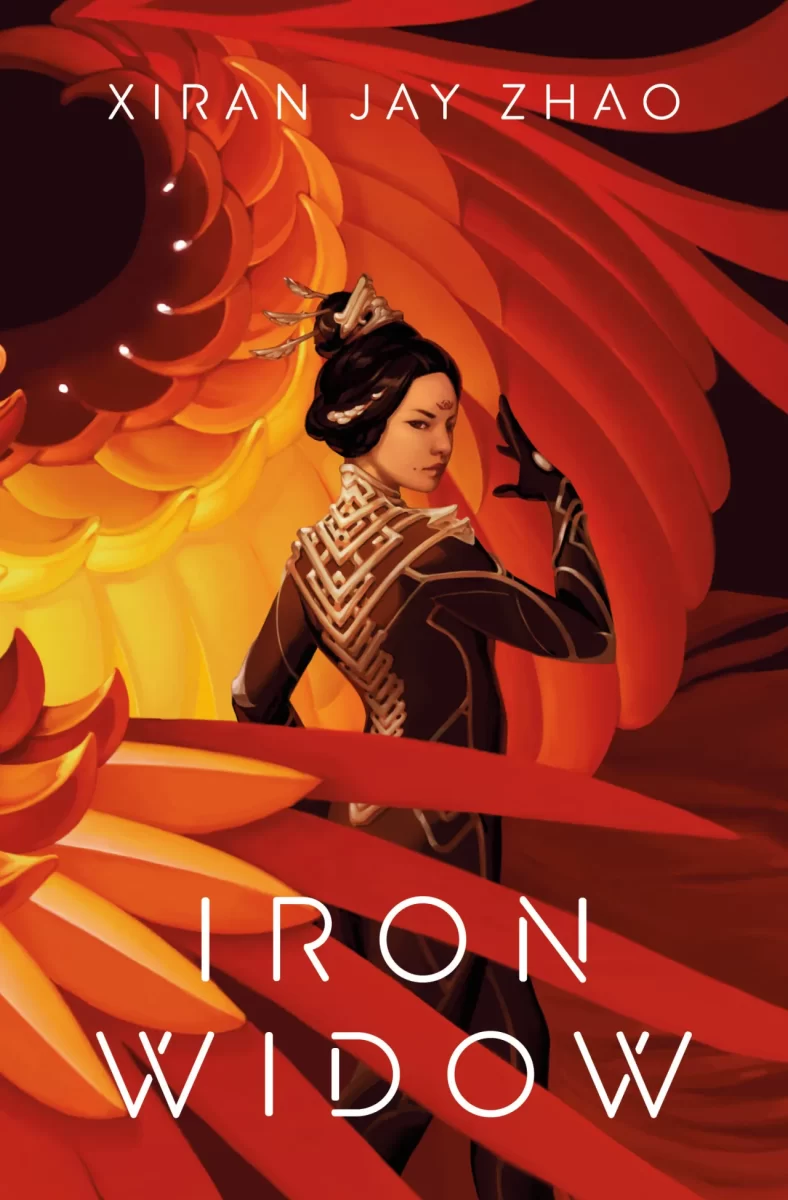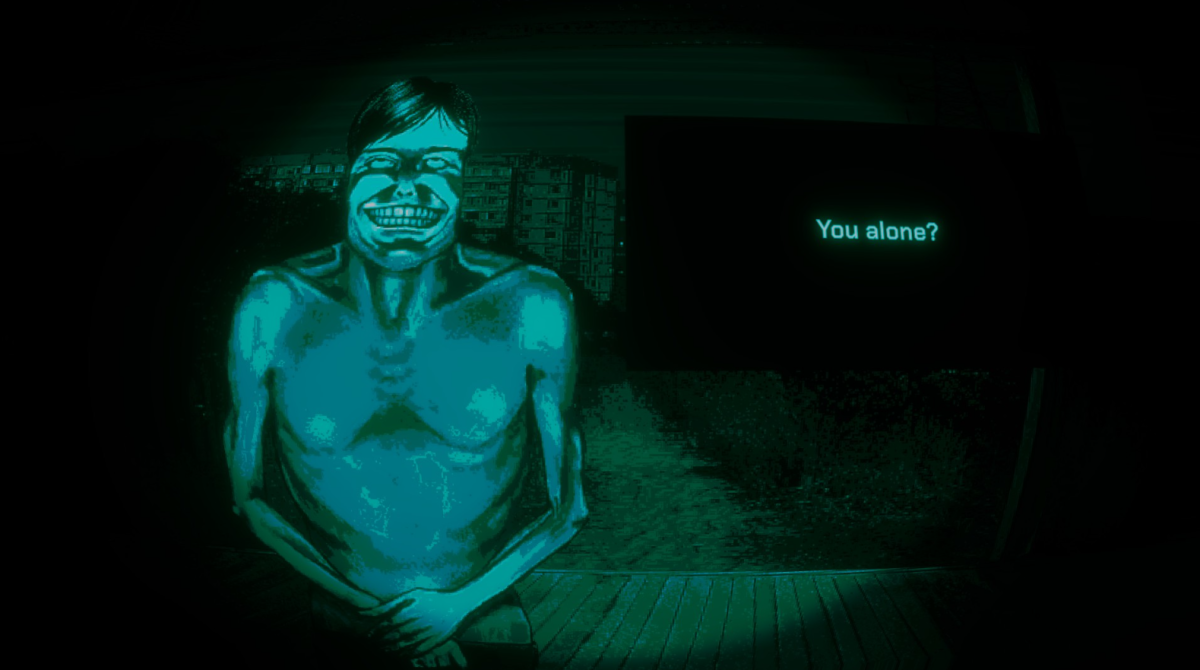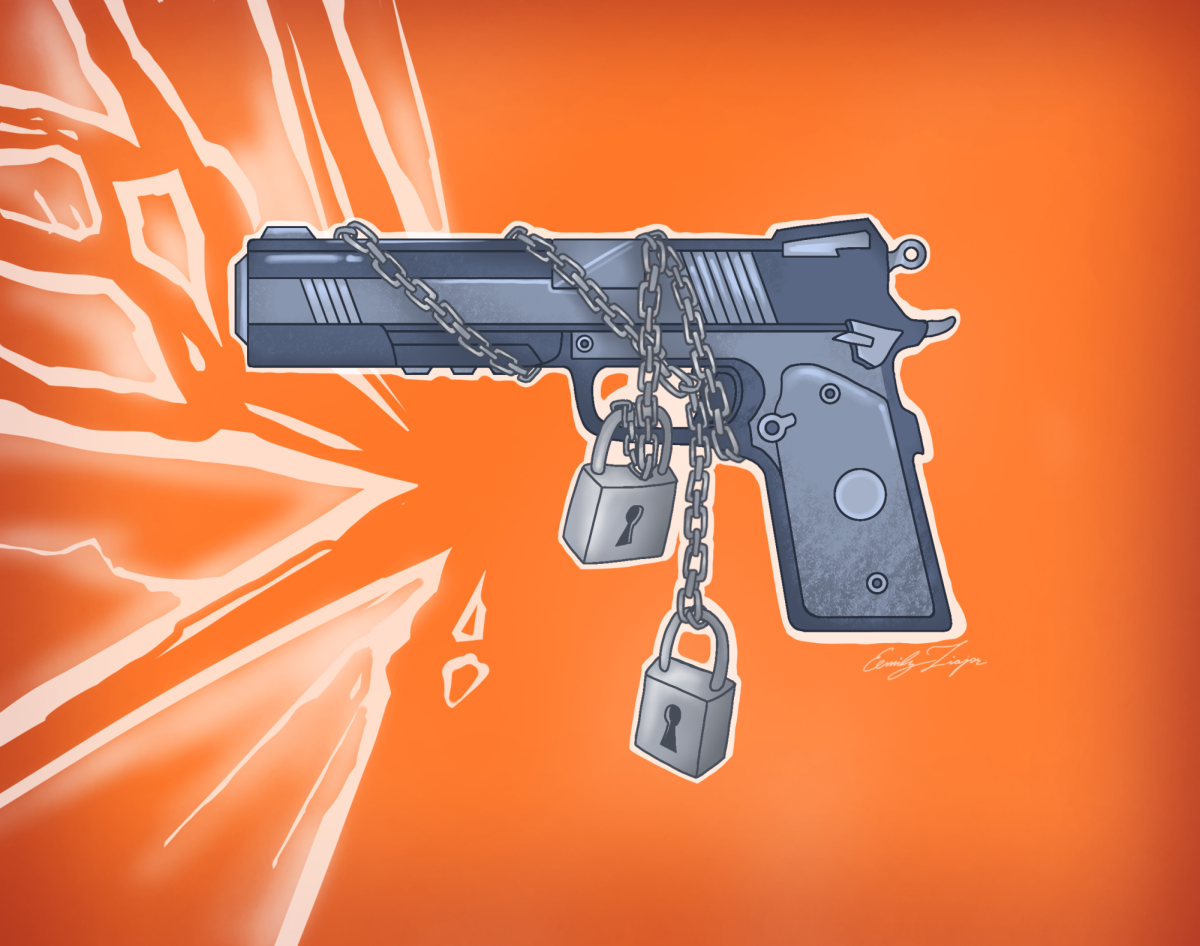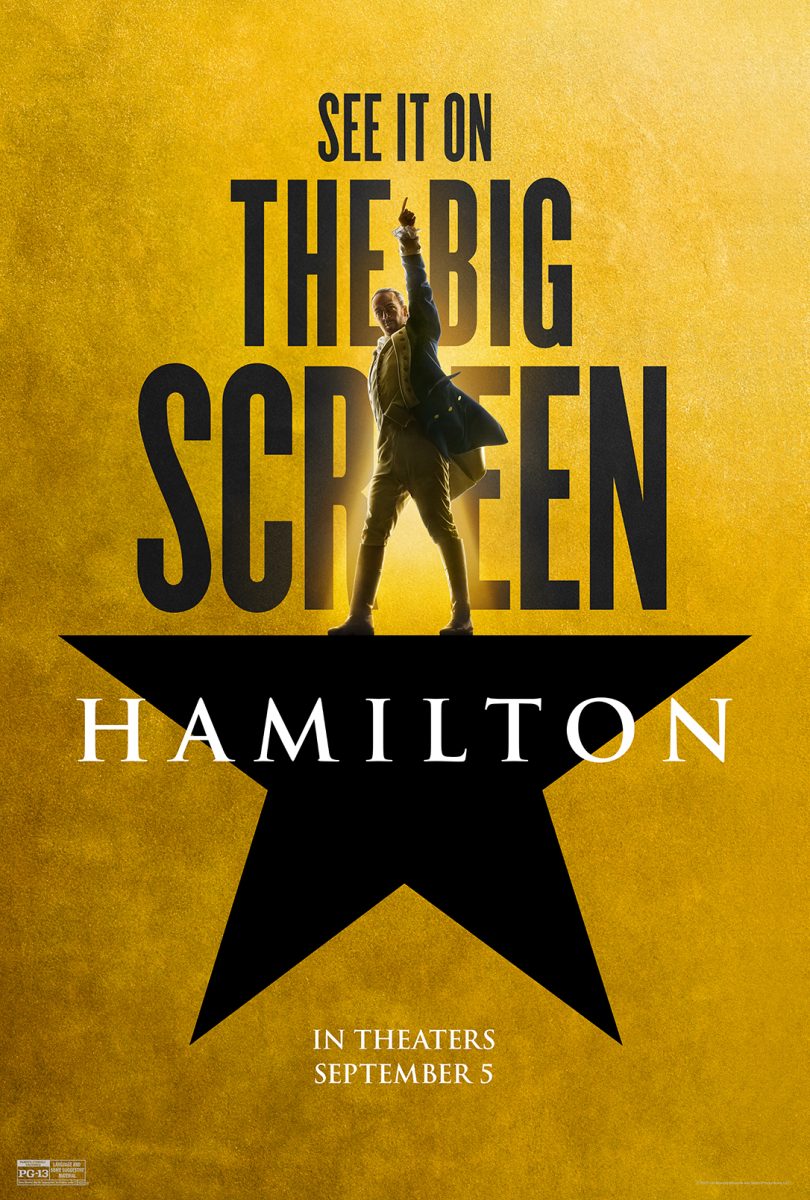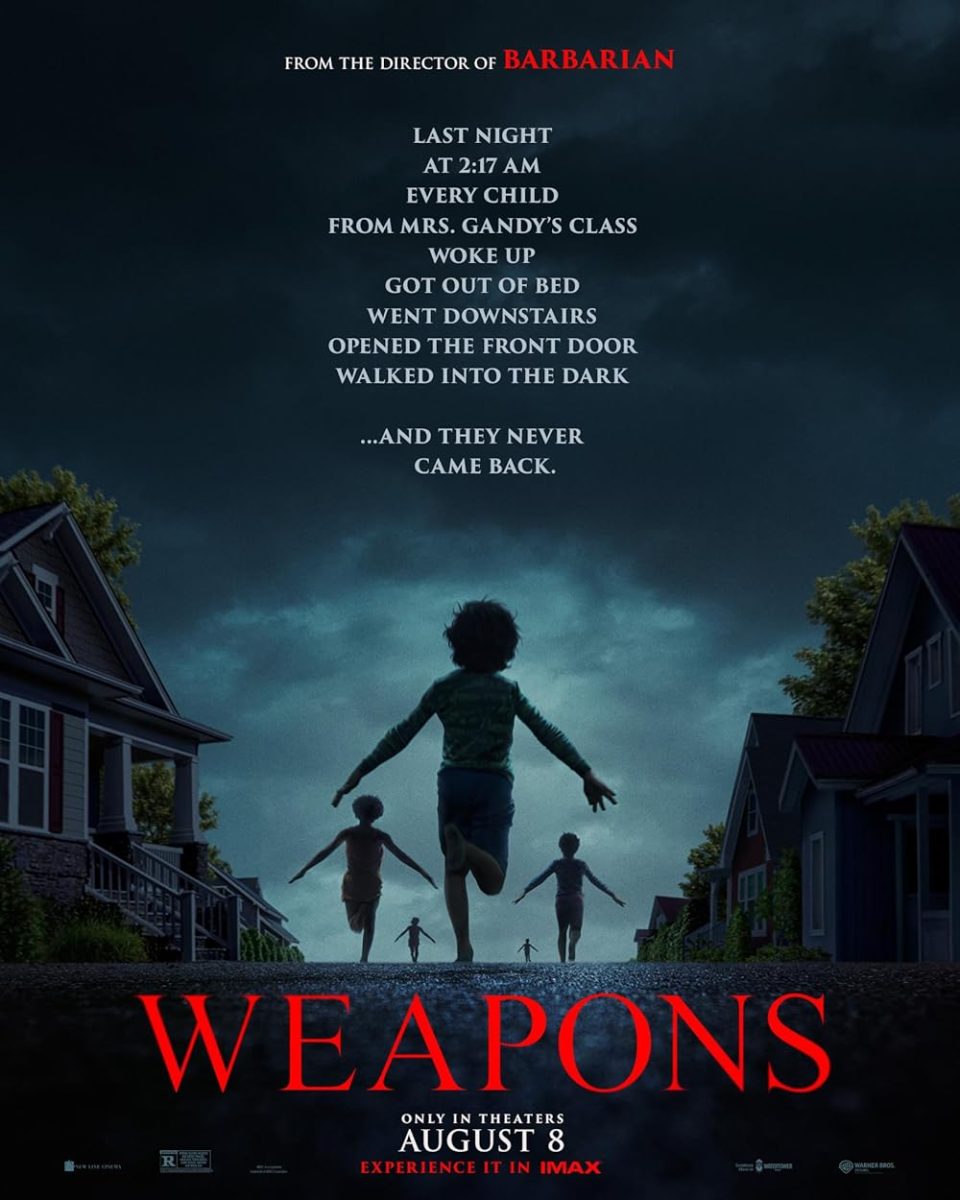Part of my New Year’s resolution was to read more. I hadn’t read more than a book a year since I was in fifth grade, so I started slowly working my way back up to the breakneck speed I was at when I was 12. “Iron Widow,” written by Chinese-Canadian author Xiran Jay Zhao, had been on my to-read list since before it was published. Finally, after procrastinating and promising myself, “I’m going to read it this week!” I finished the book. It was worth the wait.
The book is a sci-fi retelling of the rise of China’s only woman emperor, Wu Zetian. Zhao states at the beginning the book is not historical fiction or an alternative history but instead just based on the story of how Zetian came to power. There were plenty of creative liberties taken, including the addition of giant robot fight suits à la Pacific Rim and inspiration from Chinese mythology to build the world in “Iron Widow.”
The book is set in a futuristic time, where humanity faces off against robot-bug hybrids, called Hunduns, that have their minds set on wiping out the rest of the population. To combat this, humans have created Chrysalises, big mechs created from the husks of dead Hunduns and powered by human qi. Qi, in the book, is described as the essence that sustains all life, from humans to animals and plants.
But Chrysalises can’t be piloted by one person. Typically, a Chrysalis is piloted by a young nobleman and his female concubine co-pilot, the latter of which will likely die in combat. This fact, and the inherent and debilitating sexism in society, enrages Wu Zetain.
Zetian is the central protagonist of the story. She is the second daughter of a poor, rural family, and she accepts the role of a Chrysalis co-pilot for one reason: to kill the man who murdered her older sister. Not long after joining, she finds herself battling for her life in a Chrysalis before she emerges victorious and with a new title, “The Iron Widow.”
The rest of the book follows Zetian as she joins forces with convicted murderer Li Shimin, pilot of the Vermilion Bird Chrysalis, and Gao Yizhi, her childhood friend, to fight against the iron-clad patriarchal society they live in.
The plot felt contained within the 391 pages that it ran through. Zetian’s goals and opinions were clear from the beginning and stayed pretty consistent throughout the book, with one major hiccup.
It would have been nice to have a little more build-up to Zetian earning the name Iron Widow. For a character with such strongly defined motives at the beginning of the story, it was a little strange to watch her shift gears so suddenly after her single goal was accomplished early on. She starts with the goal of killing the man who killed her sister, then two chapters later, she is looking to dismantle the whole patriarchal system. While it was thoroughly entertaining and a touch cathartic, it did throw me for a loop. Zhao does a decent job of tying this newer, grander scheme back to Zetian’s original goal, but it still felt a bit lackluster.
It also would have been nice to establish Zetian’s nuanced relationship with her family with more depth at the beginning of the book. The second part felt too character-driven than plot-driven. While I don’t mind a novel that hinges its story on the relationships and developments of characters, it felt slow after the face-pasted first section. While Zhao does a lovely job of exploring the nooks and crannies of Zetian’s relationship, I wanted more.
But overall, the book kept me on the edge of my seat. It was entertaining and witty but pairs itself well with a humbling and darker throughline of the challenges of sexism. I was shocked at how well I enjoyed the novel, despite it being a sci-fi book and my not liking sci-fi books. What always loses me is the worldbuilding, which is either far too slow to keep my attention or far too fast to keep me educated.
“Iron Widow,” broke through and delivered exposition and immersive world-building but allowed me to explore and understand the world through the characters’ interactions and dialogue. There was never a time I had to backtrack to remember information. The exposition felt artful during the first quarter of the book, and the other three-quarters felt dedicated to exploring character relationships and furthering Zetian’s goals.
Zetian is a fascinating protagonist. She is angry- all the time. And rightfully so. While I wouldn’t categorize her as a well-done, morally gray character, I do think she is on the path to becoming an example of the rare ambiguous female character.
Most characters like Zetian fall into one of two categories: a true ambiguous character hated by readers purely because she is a woman or just an asshole. The first is a result of male-centric sexism in literature, and the second is a result of poor writing and misunderstanding of female characters.
Zetian falls more into the first category for me, although there are moments in the book where she titters on the edge of “just an asshole.” This is especially evident in her interaction with the character Li Shimin. Shimin, in the beginning, is incredibly wary of Zetian because she tried to kill him the first time they met. But as the book goes on, he warms up to her and they form an unlikely friendship. Despite this, Zetian seemingly goes out of her way to remind Shimin that she is ready and willing to end their friendship regardless of whether or not it benefits her. She lashes out too quickly for what feels like plot progression and her internal monologue feels underdeveloped at times and too self-centered to make monumental character growth.
I do think Zetian changes her opinion of individuals, but she does not change her overall philosophy. This might be attributed to the fact that Zhao signed a two-book deal with their publisher, Penguin Teen Canada, and thus is set to get a grander and more in-depth development in the upcoming sequel. Or it may just be just because Zhao had a lot to say and not as many pages to say it in.
Zetian faces a lot of sexism and discrimination because she is a woman. While Zhao handles the topic of sexism fairly well, it is extremely heavy-handed and explicit. There were quite a few uncomfortable scenes I had to skim over where the male characters seemed to go out of their way to attack, kill or assault Zetian.
What finally pulled me out of my reading slump was the recent controversy with the Hugo Awards. According to an article by Vulture published on Feb. 16, Zhao and several other notable authors had been left off the Hugo Award ballots because their works had been deemed “ineligible” despite receiving enough preliminary votes to be considered. Because no reason was given on the ballot for why these exclusions happened, Zhao had taken to TikTok to discuss their thoughts and speculated that it might have been due to underlying political reasons.
While I’m not here to comment on the controversy, I do think it’s fair to say that Zhao should have been given a fair shot at placing in the Hugo Awards. And though it won’t match up to the notoriety of a Hugo Award, I would still recommend “Iron Widow” and encourage people to support the author and the book.
All in all, “Iron Widow” is a well-rounded book with plenty of action to keep you invested and a welcoming world-building that never felt too forced. Due to its rather heavy material, I would not recommend this book to people who are looking for a light-hearted read to boost their book totals this year. If you have the time and the energy to dedicate to thumbing through all 391 pages of “Fight the Patriarchy” and Feminine Rage, then “Iron Widow” is the book for you.
3.75/5



